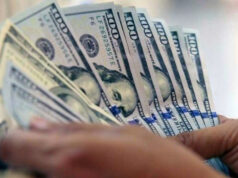Tax lobby wants bank secrecy safeguards in TRAIN
THE association of tax professionals is proposing to limit the Bureau of Internal Revenue’s (BIR) power to look into bank deposits, saying that such authority could be subject to abuse in cases where taxpayers file incorrect returns.
In a position paper, the Tax Management Association of the Philippines (TMAP) said that power to look into bank deposits can be abused even in cases of mistaken filing, which is a common occurrence given the complexity of the tax code.
“We respectfully believe that the Commissioner’s authority to inquire and receive information on bank deposit accounts and other related data held by financial institutions should not include instances covered by Section 255 and that lifting the confidentiality of the bank and other financial information should be limited to tax evasion cases,” TMAP said.
Section 255 of the National Internal Revenue Code (NIRC) of 1997 refers to penalties for a taxpayer’s “failure to file return, supply correct and accurate information, pay tax withheld and remit tax and refund excess taxes withheld on compensation.”
“Given the complicated tax laws, even a simple mistake of failing to file a return or supply the correct information may be abused by tax authorities to conduct at fishing expedition on the financial affairs of taxpayers,” the group added.
Under Senate Bill No. 1592, or the Tax Reform for Acceleration and Inclusion (TRAIN) Act, it gives the BIR Commissioner power to “inquire and receive information” on bank deposits of “any taxpayer upon order of any court of competent jurisdiction in cases involving offenses covered under sections 254 and 255 of the NIRC.”
Section 254 refers to “willfull attempts in any manner to defeat or evade tax.”
The legislation seeks to create exceptions to Republic Act No. 1405, or the Bank Secrecy Law, as well as Republic Act No. 6426, or the Foreign Currency Deposit Act of the Philippines.
The relaxation of the Bank Secrecy Law was one of the tax administration provisions under the proposed reform program that is currently awaiting Senate approval.
Other measures include the mandatory issuance of electronic receipts at the point of each sale, the reporting to the BIR using of electronic point of sales systems, and the fuel marking system.
The tax reform program — which primarily reduces personal income tax rates, against higher excise levies for fuel and cars, an excise tax on sugar-sweetened beverages, harmonized estate and donors tax rates, as well as fewer value-added tax exemptions — is expected to be implemented in 2018. — Elijah Joseph C. Tubayan



